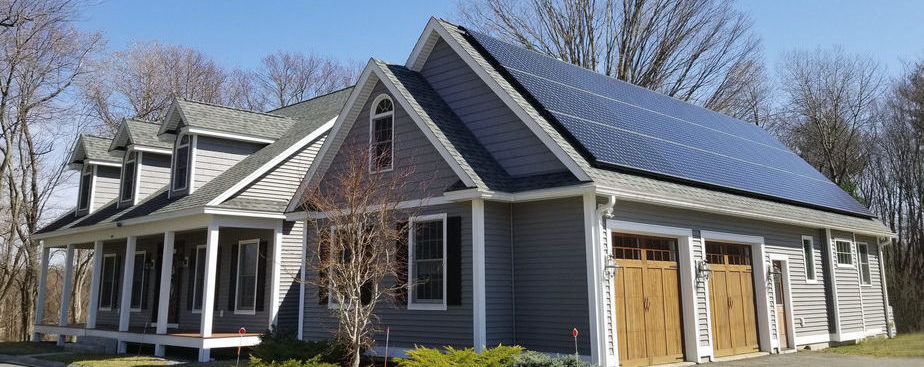 Many residential homeowners and businesses go solar for economic benefits. While there are some minimal upfront costs, homeowners see a substantial return on investment when they choose to purchase solar panels. In fact, because it’s such a low-risk investment, many people are starting to consider solar for their retirement plans. The average return on investment for solar in Massachusetts is six to eight years, but ROI depends on a range of factors so every installation varies.
Many residential homeowners and businesses go solar for economic benefits. While there are some minimal upfront costs, homeowners see a substantial return on investment when they choose to purchase solar panels. In fact, because it’s such a low-risk investment, many people are starting to consider solar for their retirement plans. The average return on investment for solar in Massachusetts is six to eight years, but ROI depends on a range of factors so every installation varies.
In this post, we’ll be focusing on some the factors that determine ROI: your electric bill, available solar incentives, and the design and layout of your system in relation to the sun.
Factor 1: Your Electric Bill
The first factor to consider when determining what your return on investment would be for solar panels is what you currently pay in electric bills. If you live somewhere with high electricity rates, and you pay a steep electric bill each month, you’ll see a greater ROI with your solar system because of these avoided costs. According to the U.S. Energy Information Administration, the Commonwealth has some of the priciest electric rates in the country. On top of that, electric rates rise around 5% every year. While this is bad for most Massachusetts homeowners, it means that homeowners who switch to solar are saving more and, in turn, getting more out of their investment. That’s why Massachusetts is one of the best states for solar power, and Massachusetts property owners see a return on investment sooner than people who install solar in most other states.
Factor 2: Available Solar Incentives
What solar incentives are available when you purchase your system has a tremendous impact on your return on investment. The Federal Investment Tax Credit (ITC) refunds you for 26% of the total cost of your installation in your tax returns. Additionally, Massachusetts offers a state tax credit that’s worth up to $1,000.
Depending on which community you live in, there are also performance-based incentives that help put money back in your pocket, so you can see a larger return on investment. For example, you could also take advantage of net metering to see a larger return on investment. With this billing mechanism, your system automatically sends the surplus energy you produce back to the grid and you receive credits on future bills in exchange. This increases your avoided energy costs, which strengthens your return on investment. If it’s available in your neighborhood, you can also join the Solar Massachusetts Renewable Target (SMART) Program, which is a performance-based incentive that compensates you monthly for 10 years for every kilowatt-hour of electricity that your panels generate. However, these state and federal incentives are dwindling, so if you want to maximize your ROI, it’s best to go solar sooner. Return on investment in Massachusetts used to be quicker under older incentive programs, so many of our past clients received four-to-six year ROIs.
 Factor 3: Your System Layout and Solar Access
Factor 3: Your System Layout and Solar Access
Key factors in your solar design, like panel type and solar access, also influence your return on investment. Picking the right panels impacts your overall ROI because high-quality panels produce more electricity than conventional solar panels, which saves you more on your electric bills. You should consider a panel’s efficiency (its ability to convert sunlight into usable energy) and wattage (the theoretical power production under ideal conditions).
Once you select high-quality panels, you want to choose an installation location that has optimal sun exposure, so you can generate the most electricity possible. This is generally the southern-facing sides of your roof and locations with minimal shade. This helps you use as little electricity from the grid as possible, so you get the greatest possible return on investment.
The Value of a Solar System
Your solar system starts saving you money (and often even making you money) as soon as it’s turned on, so going solar is a smart investment opportunity. You’ll even make some money back when you eventually sell your solar-powered home since solar panels increase the value of a home. Today, most Massachusetts homeowners see a full return on investment within eight years or less. Your electric bill, available solar incentives, and your solar design and access are three crucial factors in determining your ROI, so it’s important to consider these elements when choosing a solar installer and purchasing your system.
Build Your Investment Plan
Talk with us to see if a solar system makes financial sense for you. We’ll calculate your return on investment and see how much value you’ll get by going solar.